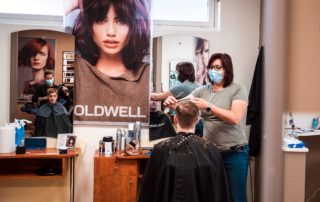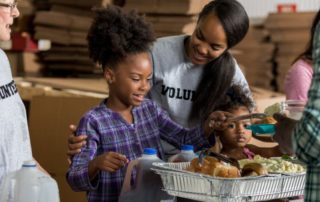COVID-19 and Recovery Response
As the pandemic enters its third year and the nation turns to recovery, the Institute for Women’s Policy Research is committed to amplifying and addressing the challenges women face. IWPR’s new research provides insights and recommendations for policymakers to help meet the urgent and long-term needs of women, their families, and their communities.
We’re in a She-cession
The economic recession caused by Covid-19 has disproportionately affected women, especially women of color. IWPR President/CEO Nicole Mason joins CNN's Dr. Sanjay Gupta on the Coronavirus: Fact vs Fiction podcast for a discussion on how the pandemic has exposed gaps in our childcare and employment systems.
Coronavirus crisis caused 40% of parents to change their job situation, survey finds
Working parents are feeling the sting of the coronavirus pandemic — and it's hitting women especially hard.
Jobs Day Numbers Show Slow Recovery Efforts
Women continue to be disproportionately affected by the COVID 19 pandemic as they remain 6.1 million jobs below pre-COVID levels from February, despite making a gain of 800,000 jobs compared with men’s 600,000 new jobs since July.
C. Nicole Mason on CNN’s First Move With Julia Chatterley
IWPR President and CEO C. Nicole Mason addresses women and the child care crisis during an interview with CNN's First Move with Julia Chatterley.
Women Bearing Brunt of COVID-19 Economic Pain
IWPR President and CEO C. Nicole Mason addresses women and the child care crisis during an interview with CNN’s First Move with Julia Chatterley.
Widespread Decline in Household Income During COVID-19 Pandemic Contributes to Food Insufficiency Among Families
COVID-19 has had a devastating impact on the economic security and well-being of families. In addition to finding and sustaining employment, many families are struggling with food insufficiency, a direct consequence of lost earnings. Nationally, more than 37 million Americans, including more than 11 million children are food insecure.





